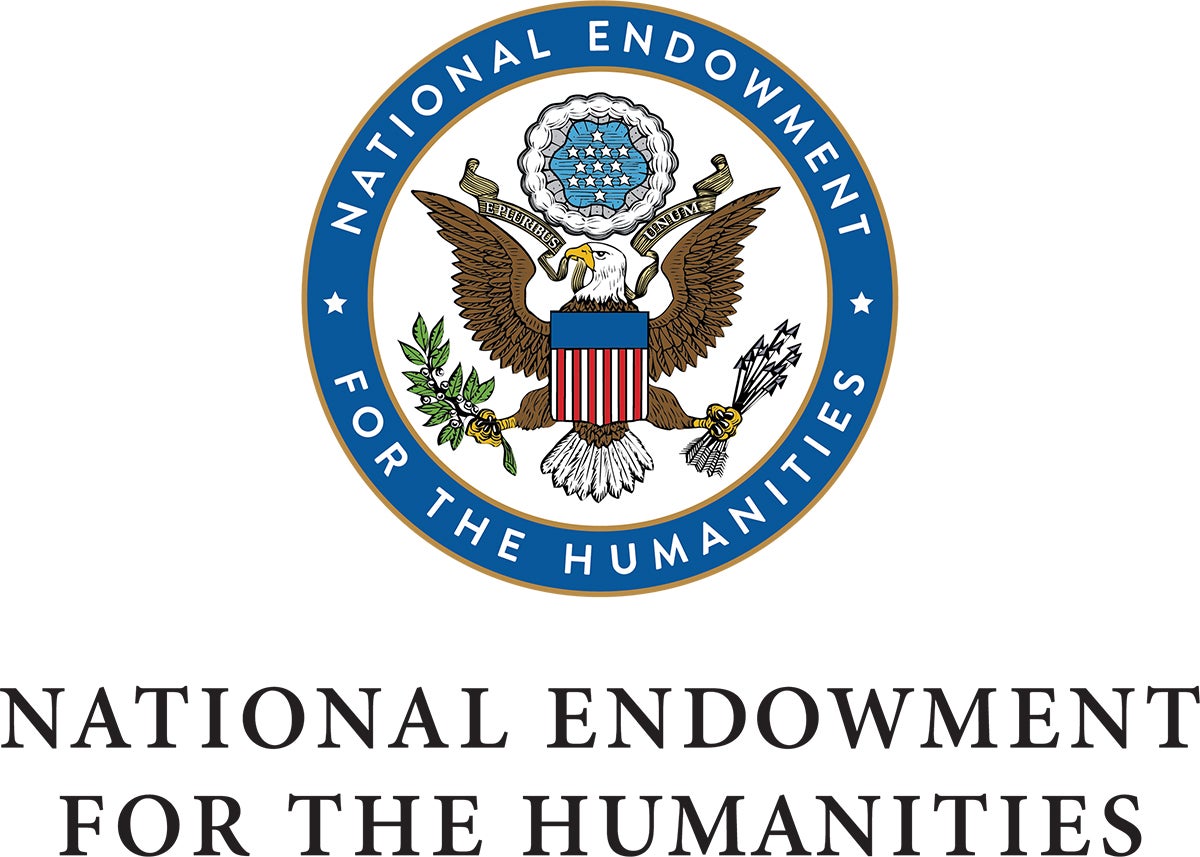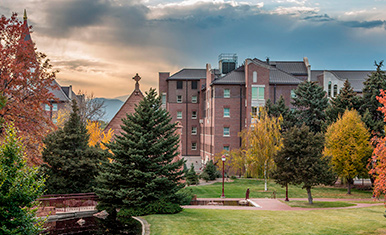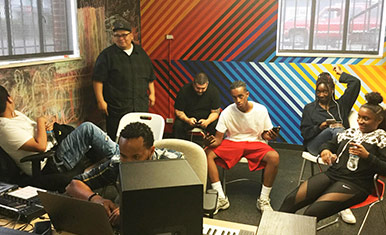IRISE Wins National Endowment for the Humanities Grant
Collaborates with CAHSS to introduce new classes that bring students into the study of Colorado’s Latine/x Past
When University of Denver student Camila FreNch conducted an oral history interview that later was developed into a podcast, she gained a deepened appreciation for Colorado’s history.Working with Teaching Assistant Professor Lina Reznicek-Parrado and Assistant Professor Carlos Jimenez on this effort, she noted, was an experience that “100% enriched my understanding of Colorado. Being able to interview someone who grew up here allowed me to see Denver for what it is now and learn about how it used to be.” The project, she said, also gave her great hope in what she believes Colorado can become.
The work that Camila and other students engaged in quickly became a model that other faculty at the University wanted to emulate, with its centering of experiential and community-based learning in partnership with the Spanish speaking community of the Rocky Mountain West. A collaboration of more than a dozen faculty members then worked with the University’s Institute for the Study of (In)Equality, or IRISE, to write a grant application for the National Endowment for the Humanities to support curriculum development.
The curricular initiative titled, Documenting the Past, Fostering the Future: Youth Voices in El Movimiento and the Struggle for Racial Justice along the Front Range of the Rocky Mountain West, is designed to engage students, faculty, and community members in place-based learning and humanities research to understand how the activities of young people from this area played a role in the past to inform perspectives for racial justice work in the present and future. Twelve classes will be developed that will engage students in original research and in the production of original multimedia narratives. The oral history collection work of the students and faculty will contribute archival material of historical value to the Rocky Mountain West and specifically to the History Colorado Center, which is also a partner in this effort.
As students work with a team of faculty members and local historians, they will uncover stories of how young people in the Colorado area contributed to the birth of El Movimiento, the Chicano movement of the late 1960s and 1970s. The courses will be part of the University’s Critical Race and Ethnic Studies (CRES) program and are being developed in partnership with the University’s Latinx Center and the Departments of Media, Film and Journalism Studies, History, World Languages, and Anthropology and their Ethnography Lab. Students will be able to take the courses either as part of a major or minor or in fulfillment of their liberal arts requirements.
“This initiative is an outgrowth of a longtime commitment to interdisciplinarity and to the work of racial justice at the University of Denver,” said Tom Romero, Faculty Director of IRISE and Associate Professor in Law, whose own area of research is in the legal history of the American West. Romero shares the leadership of the grant with Sociology and Criminology Professor Lisa Martinez, Media Studies Professor Lynn Schofield Clark, and IRISE Associate Director Marinka Swift. Seven other faculty members, listed below, round out the team.
Martinez, who also co-directs the University’s Center for Immigration Policy Research, noted, “I’m looking forward to having students involved in interviewing people who have been impacted by Colorado’s immigration policies. Connecting students with Colorado residents and with current immigration lawyers as well as with those who worked on immigration issues in the past will help students to better understand how we came to have today’s policies and, I hope, it will also help them to envision positive possibilities for the future.”
Clark, who serves as Director of the Estlow International Center for Journalism and New Mediaas well as a Professor in Media, Film, and Journalism Studies, observed that her department’s involvement will enable students to gain familiarity with storytelling as it occurs in social media-friendly formats. “Research is demonstrating that involving young people in creating stories for public consumption, whether through podcasts or on sites like Instagram, can help to strengthen the civic imagination. Also, hearing the stories of Spanish language and Latine communities are important to the making of a robust and inclusive democratic society,” she said.
Swift, whose expertise is in the ways that language structures understanding, is especially enthused about how students will develop a deeper sense of belonging, as well as a more critical awareness of Colorado’s history. “Students who never before considered the power of language – or who have perhaps experienced their language(s) and ancestral stories excluded from histories – have a chance to explore it through their work in collecting and analyzing in-depth written and oral history materials,” she noted.
Other faculty members involved in the effort include:
Carlos Jimenez, Assistant Professor in Media, Film, and Journalism Studies; expertise in media use among Mexican American day laborers and among young People of Color new to politics
Lina Reznicek-Parrado, Teaching Assistant Professor in Spanish; expertise in young Spanish language heritage speakers
Esteban Gómez, Associate Professor in Anthropology; expertise in Latinx, White and Mestizo youth community action
Hava Gordon, Professor of Sociology; expertise in youth political action and activism and gentrification’s impact on education
Angela Parker, Assistant Professor in Indigenous History; expertise in Indigenous sovereignty and climate action
Elizabeth Escobedo, Associate Professor of Latino/a History; expertise in 20th century Mexican American history and gender
Runchao Liu, Assistant Professor of Media, Film and Journalism Studies; expertise in sound-centered cultural practices
Disclaimer: Those involved in the project recognize that there are differing positions regarding terms used to reference Latine, Latinx, Latino/a communities.
Disclaimer: Any views, findings, conclusions, or recommendations expressed in the curricular project do not necessarily represent those of the National Endowment for the Humanities.



